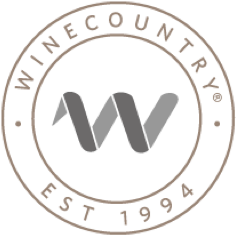- 1025
- 0
Appellation vs. Terroir
I’ve recently been drawn into a blogosphere discussion about terroir, which I think is largely empty of meaning. Some points I made in an email string got sent around, and you know how that goes: pretty soon people were chewing on me without having the whole enchilada.
So here’s a simple summary for anyone out there following the discussion. Appellation and terroir are related in one way: vintners can use both concepts to describe (and therefore sell) their wine. Otherwise, they are fundamentally different.
Terroir is abstract, undefinable (even the French love to say that), and personal. Anyone can tell you anything about their terroir, and you would have to do some direct empirical digging before you could even know what they mean, much less believe in it. Terroir is a human concept, which means it’s inherently malleable and spinnable. In the U.S., the term “terroir” is, in my humble opinion, an empty cliché. People throw the term around without understanding it, mostly because they hear other people throwing it around. We are a herd of terroirists. Mooooooooo.
Appellation is geographically concrete, legally defined, collectively determined, and very tough to alter once it’s set. Along with varietal and producer, appellation is the only hard fact people always ask about when they encounter a new wine: “where’s it from?” If the new wine is Pinot Noir, and its origin is an appellation like Russian River or Willamette Valley, we can feel fairly confident about the wine. If the appellation is “California,” however, we might wonder. You can’t fake a Russian River Pinot Noir. Either it is or it isn’t.
So that’s one way to tell terroir and appellation apart: one’s spin, and one’s fact. Here’s another test: What do you learn when people use the terms?
Let’s say we meet someone a party and he tells us that his new Cabernet is from a “terroir” with well-drained soils, south-facing slopes and little rain outside of winter. What did we learn from this? Almost nothing about the wine, or about him. The wine could come from the high plains of southern Arizona. He could be a wacky dreamer on two acres in Tennessee or a corporate chieftain with 500 acres in Paso Robles. He will say that his wine “reflects its terroir” or that “the terroir is ideal for Cabernet” because every web site says that about every wine. Translated, this means that all terroir is ideal for whatever is growing there – because the people growing there say so. But if all terroir is ideal, all the time, everywhere, then what is it besides pure hype?
Now let’s imagine that we meet someone who says their that their new Cabernet is from Napa Valley. Unless he is a crafty negociant, we instantly know many things about both the wine and the vintner: his level of wealth, his vinous aspirations, the likely weight and style of his wine, what it probably costs, and why it’s priced that way. There is a limited set of places he could be growing fruit or buying it. There is a tight, narrowing band of quality that his wine must fit within for a whole set of reasons. We would be able to guess who this person knows, where he eats, and how he socializes.
Terroir is what vintners want others to think about them and their wine. Appellation is what’s true about them and their wine, no matter what they say.
Which do you want in your glass?
– Thom Elkjer
Check out my regular wine coverage at www.winecountry.com.










